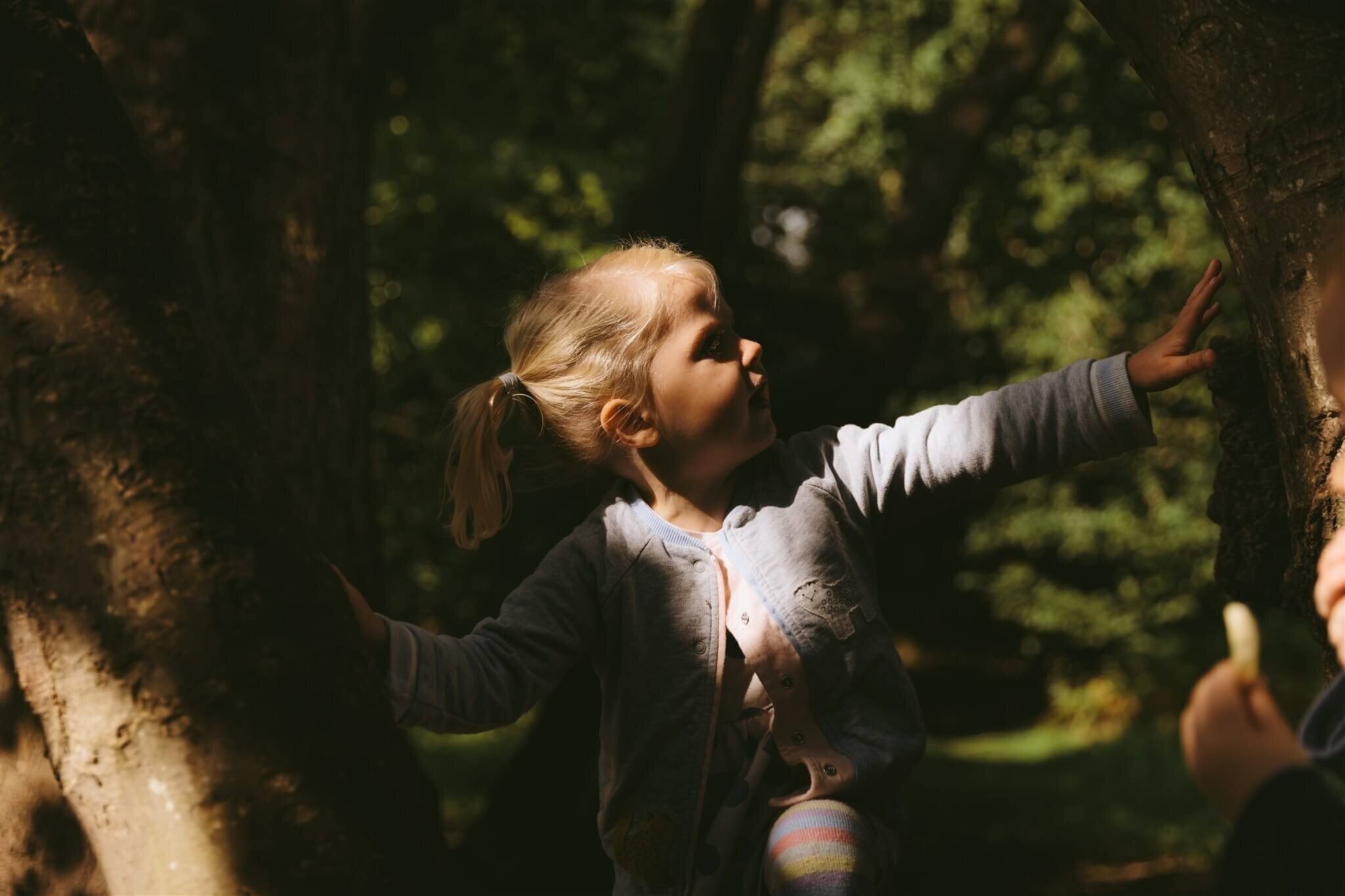
“An inspirational process that offers children, young people and adults regular opportunities to achieve, and develop confidence and self-esteem through hands-on learning experiences in a woodland environment”
— Forest School Association
What is a forest school?
In short, Forest School is a learner-centred learning process, focusing on holistic growth through regular education sessions in a natural environment. Intended as a long-term program rather than an occasional day out, it allows time and space for play, exploration and supported risk-taking to build confidence and resilience in the learner.
The philosophy
Forest School is built on a philosophy of child-led learning, with an aim of fostering rich learning experiences, ecological literacy, and healthy living by connecting children to nature.
Working with the abilities, personality and inherent qualities of the learner, while using the environment around them to stimulate learning and development.
The forest school in practice
Throughout a day at forest school, children have the freedom to explore, play, build, create, imagine, and use their senses to experience the outdoors and engage with each other. The sessions are led by trained forest school practitioners and take place outside the classroom in all weathers. The day can consist of many activities and is largely dictated by the desires of the learner group, with options appropriate to the age of the learners including, learning to use and make tools, build dens, dig in the mud, identify bugs with magnifying glasses and so much more. A high ratio of adults to children supports managed risk-taking and also allows group leaders to get a better sense of each individual’s needs so they can be properly supported.
History of Forest School in the UK
The development of Forest School in the UK really began in the mid-1990’. Originally developed in Scandinavia in the 1950s, the forest school focused on teaching children about the natural world. Hearing about this friluftsliv, or free air life approach, Nursery Nursing students from Bridgwater College in Somerset visited Denmark in 1995 to see for themselves how these schools were run. Impressed at what they observed, they decided to investigate how they could apply it to childcare provision in the college’s Early Years Centre. Since then Forest School has grown and spread across the country as more and more educators and parents have witnessed the positive impact that it can have on children.
More information on Forest Schools can be found at The Forest School Association.
Evidence of benefits
The benefits of forest school for children and learners of all ages have been clearly demonstrated time and again. For example, findings from a report from the Forestry Commission entitled “Forest Schools: impact on young children in England and Wales” suggested that Forest Schools make a difference in the following ways:
- Confidence: children had the freedom, time and space to learn and demonstrate independence
- Social skills: children gained increased awareness of the consequences of their actions on peers through team activities such as sharing tools and participating in play
- Communication: language development was prompted by the children’s sensory experiences
- Motivation: the woodland tended to fascinate the children and they developed a keenness to participate and the ability to concentrate over longer periods of time
- Physical skills: these improvements were characterised by the development of physical stamina and gross and fine motor skills
- Knowledge and understanding: the children developed an interest in the natural surroundings and respect for the environment
A case study of a Forest School initiative in Oxfordshire found evidence of increased speaking and listening skills, noting an ‘increased ability of quiet children to express themselves, an increase in confidence, and positive participation from disruptive children.’1
And even Ofsted have stated: ‘learning outside the classroom contributed significantly to raising standards and improving pupils’ personal, social and emotional development’. 1 Swarbrick et al (2004), Self‐esteem and successful interaction as part of the forest school project
Further Reading
We love this video showing a study done by Loughborough University into the benefits of Forest School and know you will too.

Our mission
Our aim at Footprints on the Moon is to create a nourishing learning environment where every child can grow and develop in their own way, all while in connection with nature. With an emphasis on self-trust, communication and respect for each other and the environment, we nurture our learners to become more confident, resilient adults who have a deep appreciation for the importance of the natural world. In this way we hope to create better outcomes for the individual, for the community, and the planet.
Our vision
We envision the growth and spread of the Forest School ethos to a point where it is no longer considered an alternative to standard education, but instead becomes integrated within the wider curriculum. And with that shift, a greater emphasis on providing a child-led learning experience, where the individual abilities and gifts of the child are recognised and appreciated, and qualities such as self-trust and compassion are nurtured. Every child will get to experience the natural world as a part of their education, each growing up with a connection to and an understanding of the environment which they will carry forward into adulthood.
Our values
At Footprints on the Moon, we:
have respect and take responsibility for ourselves, each other and the environment.
ensure that every child is recognised for their own abilities, talents and gifts.
appreciate the richness of the forest around us and pledge to take care of our surroundings, working in harmony with the natural world and treading lightly as we go.
spark curiosity in every child, allowing them to grow and flourish in the natural environment.
create the right conditions to allow children to breathe, ground and connect with their inner-selves.













